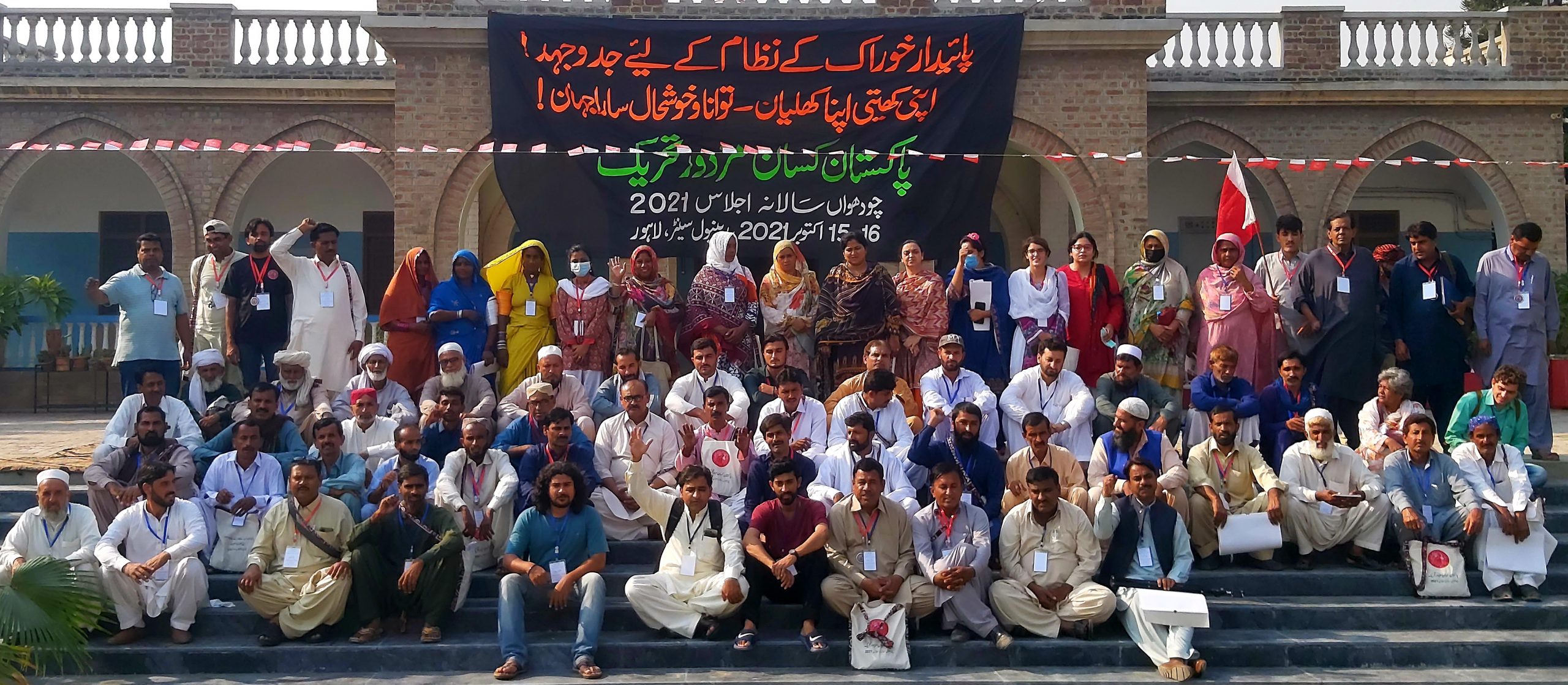Press Release | Women Farmers’ Press Conference on Corporate Capture in Dairy and Livestock
On November 10 2021, women farmers and members of Pakistan Kissan Mazdoor Tehreek (PKMT) held a press conference at the Sahiwal Press Club to protest against governments crackdown on fresh milk, the proposed ban on the sale of fresh milk along with the impending implementation of the Minimum Pasteurization Law as well as increasing trade liberalization and corporatization of the dairy and livestock sector.
Women farmers said that dairy corporations seeking to capture the dairy sector for their own profits are leading the attack against fresh milk by labelling it unsafe and unhygienic. Majority of the people in our country prefer the taste of fresh, whole milk and it is due to corporations’ failure to increase the popularity of packaged milk that they are resorting to other means, including pushing for stringent processing regulations and enlisting doctors and scientists to back unfounded claims regarding the safety of farmer-produced milk. According to PKMT members, international standards dictated by Codex and WTO form the base of attacks against fresh milk, corporate maligning of fresh milk makes no logical sense since our ancestors have been producing and consuming milk in the traditional way since many millennia without any negative impacts on their health.
Women farmers also spoke of the recent drive to import foreign cattle for increasing milk productivity. They said that such measures only benefit large cattle farms since small and landless farmers cannot afford to buy and sustain imported cattle due to high cost of industrial animal feed, veterinary costs and infrastructural costs. Additionally, there are high security risks of keeping expensive cattle in villages. The popularization of high-tech processes including artificial insemination techniques and genetic manipulation as well as company-produced products including hybrid fodder seeds and mechanized milking equipment are part of a drive to establish large-scale dairy farms and drive out small and landless farmers from the dairy and livestock sector.
Asserting their position as the key workforce in livestock rearing and maintenance, women farmers also highlighted how land and livestock are complex and deeply interconnected components of rural economies and are crucial to their livelihoods. Women reiterated the demand for just and equitable land distribution, saying that land access is crucial for accessing fodder to sustain livestock. They also said that the sale of milk, milk products and dung cakes ensures regular income that is critical for daily household expenditure. A ban on fresh milk and corporate takeover of the sector would not only steal their livelihoods but would also be detrimental to their health; access to fresh milk works to offset rural nutritional deficit due to consumption of milk, butter, yoghurt, lassi and ghee.
Women said that the imposition of anti-farmer and pro-corporate standards and policies is threatening their lives, livelihoods and their right to food sovereignty. They made the following demands:
- Prioritize just, equitable and genuine land reforms that allow land redistribution to landless farmers, including women agriculture workers
- Ensuring women’s right to own and control land, livestock and all productive resources
- Reject WTO-enforced international food safety standards and all WTO Agreements, including TRIPs Agreement that has captured farmers’ seed resources and now, is attacking livestock genetic resources
- Conserve hardy indigenous livestock species that are resilient, well-adapted to local climate and produce high-quality milk (using local varieties of fodder)
- Government must disallow foreign investments in farming, dairy and livestock sector that are encouraging the formation of large-scale, mechanized corporate entities
Release by: Pakistan Kissan Mazdoor Tehreek & Roots for Equity



